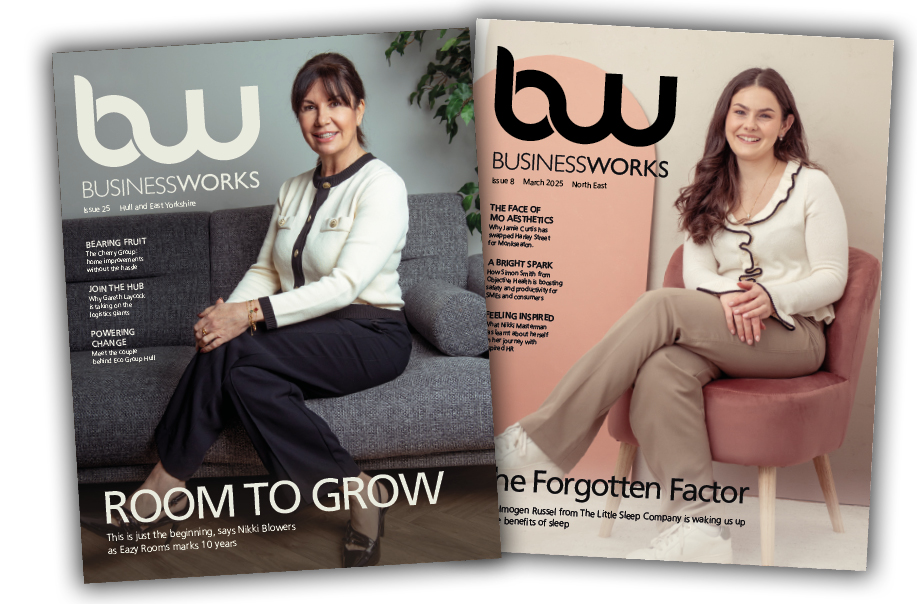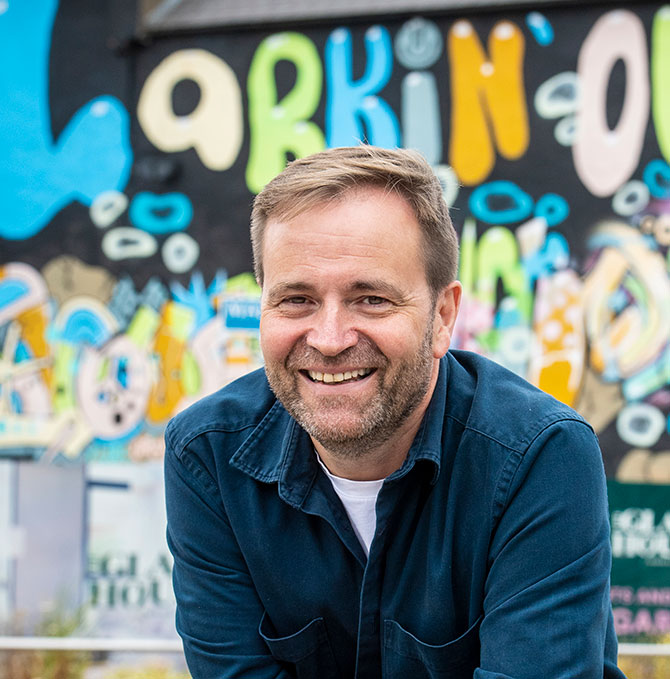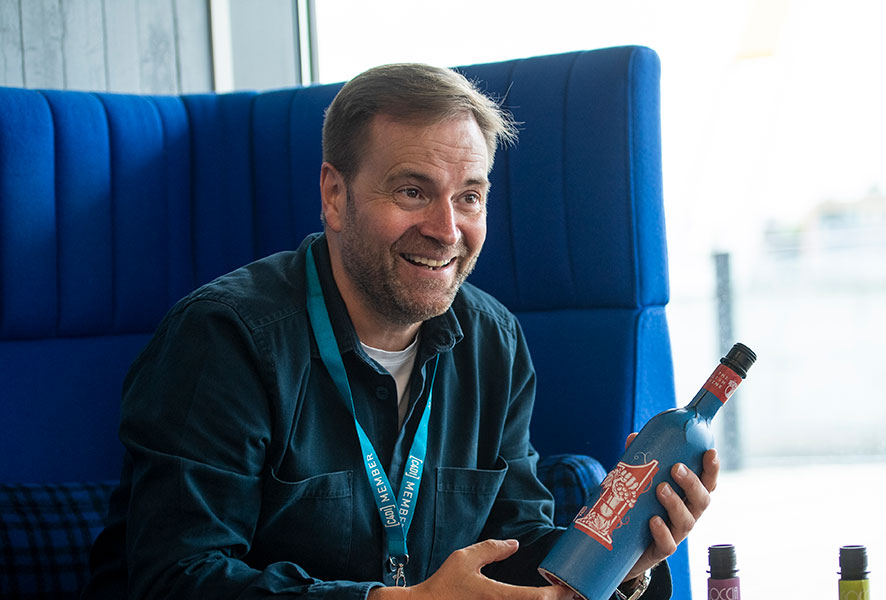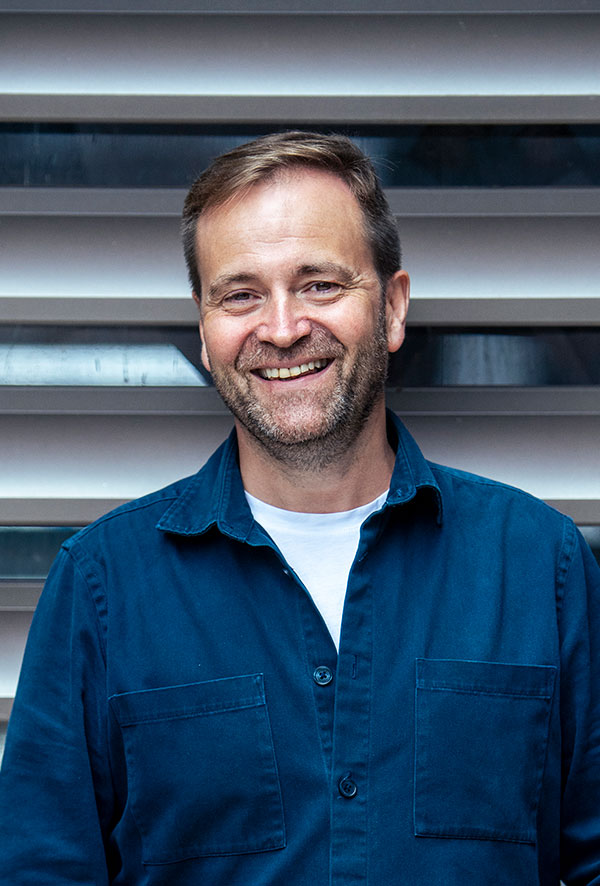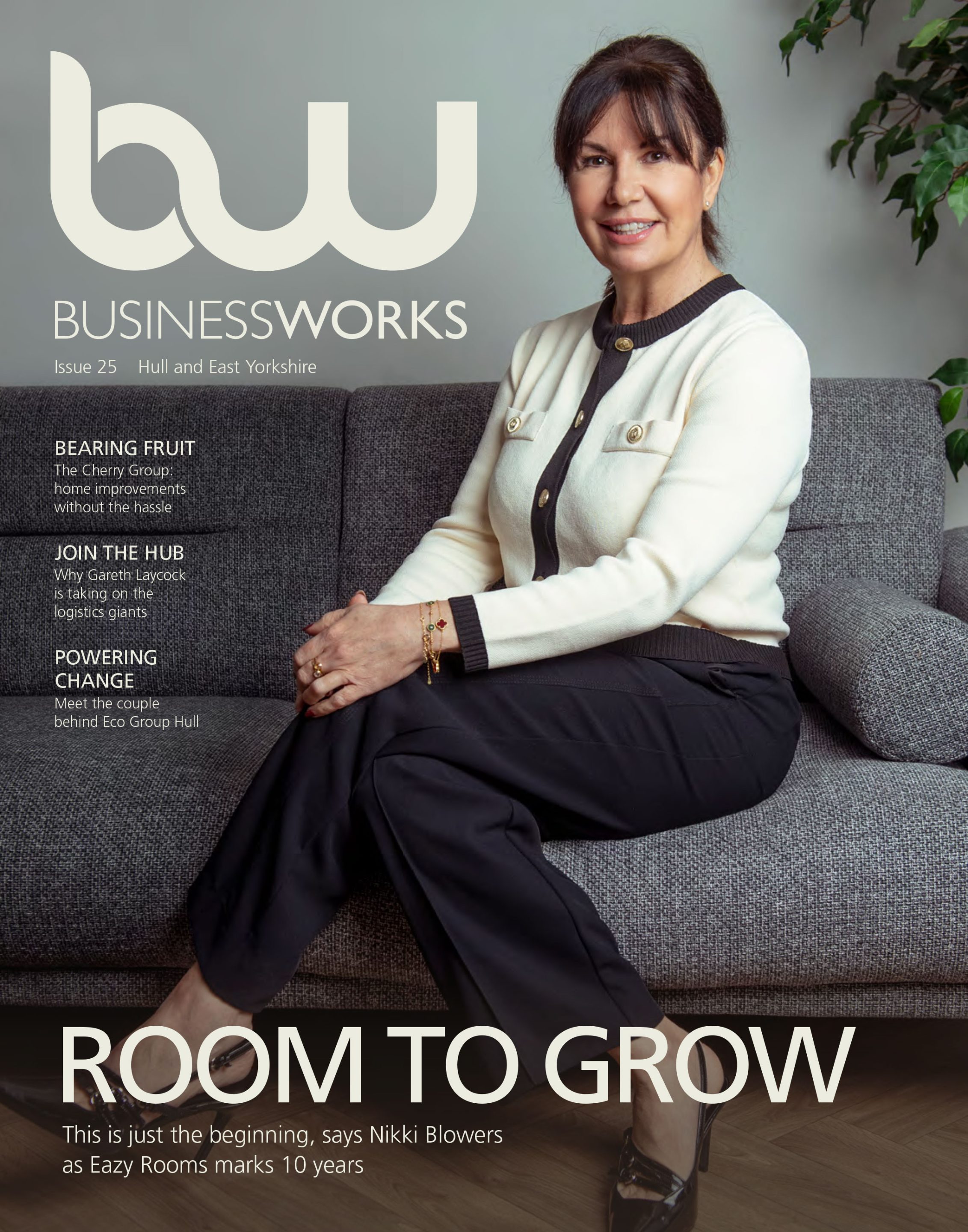Hull is like a magnet, says David Prescott, who was ‘pulled back’ to the city to launch his own PR consultancy in January 2020. He tells Sam Hawcroft it was the best thing he ever did…
David Prescott was born four days after his father, John, was first elected to the seat of Hull East in June 1970 – and his very first memory of him concerns a stick of celery.
“I must have been about two, and he was in our front room. I thought, I know he likes celery, so I went to the fridge and got some, and tried to feed him it. I kept trying to put it in his mouth, but he wouldn’t eat it.
“My mum had to explain it to me. ‘Your dad’s on television!’”
From the age of just four, David would help to put leaflets through letterboxes on election campaigns. But, while he would later make forays into local and national politics, what he really wanted to be was a journalist.
After his A-levels he did shift work at Viking FM and Radio Humberside, and for the latter he was tasked with updating the diary and contacts book.
“You would basically be ringing people up and saying, ‘Oh, hello, is Bert Smith there?’ There’d be a silence, and the woman on the other end would be like, ‘No, love, he died three years ago.’”
David went to Sheffield to study for the NCTJ qualification in journalism, and while there he spotted a curious piece of paper pinned to a noticeboard.
“Do you want to make it in journalism?” it read. “Based in Hull, great salary – compared to the national average wage in Peru.”
The originator was none other than Brian Lavery, a vastly experienced newspaper journalist who had his own press agency in Hull’s Land of Green Ginger. He’s now best known for his book, The Headscarf Revolutionaries.
“I went to work with Brian and I learned so much from him,” says David. “I think press agencies are a great way of learning, but also a great way of selling. We would go to crown court, magistrates’ courts, inquests – which we were all quite close to in the Old Town – and we would find the stories and then try and sell them to national newspapers, which is very similar to public relations. So the skills that you learn, in trying to tell the story in the first paragraph, and make it as engaging as possible, still stand me in good stead 30-odd years later.”
His first big break came in 1995, with a move to GMTV as a senior producer and then reporter for the country’s top-rated breakfast news show, covering some of the era’s biggest stories, including the death of Diana, Princess of Wales.
Six years later, he was head-hunted to be assistant editor on the newly created BBC Look North (East Yorkshire and Lincolnshire), which was part of then director-general Greg Dyke’s £25 million Project Hull.
Before the new flagship BBC building, Queen’s Court, was opened in 2002, the show was based in the old Radio Humberside buildings in James Street, but filmed 60 miles away in Leeds. “Travelling there and back, it was like doing a live outside broadcast every day of the week,” says David. “And we were trailblazing in the field of video journalism, with reporters themselves doing the filming and editing.”
At one point Look North was getting a higher audience share than Eastenders, and it’s still one of the most successful regional shows in the UK.
“Traditionally, Look North would be heavily weighted towards West, North or South Yorkshire, so it was great to be able to tell stories that were much more relevant to local people,” adds David.
He was then seconded by the BBC Network to be a senior news editor based back in London at Television Centre, co-ordinating coverage for TV bulletins, radio and News 24.
In 2004, David left the BBC to move into public relations, joining leading corporate consultancy Grayling as an account director, and just eight months later became head of media at public sector PR agency Geronimo Communications (now Kindred, after a merger in 2009). During his three years there he devised and delivered the London Student Awards and set a up media training programme for the capital’s state school teachers, among numerous major projects.
In 2009 he launched Game Changer, a one-stop campaign consultancy for public relations, media training, public affairs and digital engagement, before spending six years as a director for Commucan, a bespoke PR and social media consultancy.
Westminster finally came calling in 2016, just after Jeremy Corbyn had won his second Labour leadership contest, and David went to work for him as a political adviser, speechwriter and press and events manager.
“I’d worked with my father over the years in a voluntary capacity, but to actually get into the leader’s office and to see right into the heart of the challenges he faced was remarkable,” he says.
And it was David who was responsible for Corbyn’s campaign slogan ahead of Theresa May’s snap general election in 2017.
“We had this really big speech that I was writing for the Fabian Society’s new year conference, and I wanted something at the end just to lift it, to define what we were all about. I remembered the new clause IV that was introduced by Tony Blair and my father, which has a bit at the end that talks about putting power, wealth and opportunity in the hands of the many, not the few. So I basically took that section, played around with it a bit, and I finished the speech with ‘for the many, not the few’. It was the first time we’d actually used it, and it felt really right.”
After a blistering campaign by Labour, May’s gamble backfired and the Tories lost their Parliamentary majority. But then came Boris and “Get Brexit Done”… and the rest is history.
The end of Corbyn spelled the end of David’s time working for Labour. “I could have stayed on, but I just didn’t want to. It was quite draining, as by that time I was living back in Hull and travelling about six hours a day on round-trips to London. I found myself, in January 2020, pondering what to do – so I set up Larkin PR.”
If you’re from Hull, and wondering whether the name is a play on the city’s most famous adopted poet, and the dialect word for going out and having fun – you’d be right.
David boasted an enviable list of clients and contacts from the past couple of decades, among them the Ipswich sustainable packaging firm Frugalpac, whose paper-based Frugal Bottle claims to be “the biggest innovation for wine and spirits since the launch of the glass bottle”.
He put together a team of freelancers and people from other established companies to pitch for the work – and won it. “We beat established multinational PR agencies,” he says, “because I had a good understanding of it, as well as a clear idea about how we were going to push the sustainable packaging. Since then, we’ve just added client after client.”
What Larkin PR offers is more than just marketing – they’re really a one-stop small business support agency, says David.
“We’re becoming a dedicated start-up and scale-up company. We’re working with companies that don’t have marketing and comms departments, but want to have that help and support as they grow. We’ve done really well with Frugalpac. We launched the bottle two years ago and they’ve just sold their first export assembly machine to Canada. They’ve got about 80 other inquiries for that as well, and inquiries for about 120 million orders from 27 wine and spirits brands around the world. And that’s all come from me literally helping to launch it from my kitchen table in lockdown.” David is wary of exposing himself to too much risk by employing too many staff, so he relies heavily on freelancers, and agrees it’s about finding the best people for the job. “I’ve always wanted to have a boutique consultancy of really experienced people,” he says. “A network we can draw on to get top-quality boardroom experience. Because we’re dealing with start-ups or scale-ups, the people we deal with directly are the CEOs. We’re not speaking to the marketing departments, we’re speaking to the people at the top.
Contrary to what many may think, David never struggles to find quality people from his base at C4DI in Hull. “I can’t think of a better place to do business,” he says. “I think the one good thing to come from the pandemic is to know that you don’t need to spend your money on swanky big offices in London to be a good PR agency. All you need is a network of people who are good at their jobs, and who can be trusted, understand the client’s needs and can deliver for them. I’ve had to go down to London for journalism – but I don’t need to do that any more.”
But, while he’s proud of his home city, he shrugs off the idea of local competition. “We are a communications agency that just happens to be based in Hull. So we can do local media – one of our clients is MediMusic, which came about through mutual connections at C4DI – but we’re organising international launches and talking to media around the world. We don’t see ourselves in competition with other comms firms in Hull, but that’s not to denigrate them at all.”
David says he’s “living his best life” back in the city, where he’s a regular in the Old Town pub music sessions, and he recently challenged himself to do “10 gigs in 10 pubs” on his stag afternoon to raise money for the Stroke Association, a cause close to his heart after his father’s illness in 2019.
“Hull is like a magnet,” he adds. “It pulled me back to launch Look North, and it pulled me back after working with the Labour Party to start the business here – and it’s the best decision I’ve ever made. I’m so much happier. It’s made me look at London in a very jaundiced way.”
There’s more to be done to ensure future generations don’t think that you have to leave Hull to get a decent career, he argues. “Hull’s sons and daughters, we need to keep here to grow the economy – but we need businesses to offer them the training, support and the opportunities to be able to do so.” And that, he says, is how you level up.

